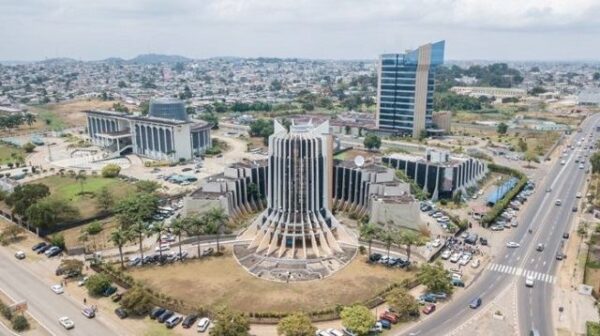In its Economic Outlook Note 2025 published this Thursday, June 26, the World Bank paints a contrasting picture of the Gabonese economy. While GDP growth reached 2.9% in 2024, mainly supported by the oil sector and the resumption of public works, this progress remains insufficient to stop the worsening of poverty, which now affects more than a third of the population (34.6%).
According to this report, the economic rebound recorded last year is mainly based on traditional drivers: hydrocarbons and public investments. Inflation has indeed decreased, but the deterioration of public accounts, linked to the drop in oil revenues and the increase in expenses, has weighed on budget sustainability. This imbalance weakens the country’s room for maneuver in the face of external shocks.
“The newly elected government of Gabon aims for a more inclusive and growth-oriented development path,” recalls Aissatou Diallo, World Bank Resident Representative in Libreville. But in an uncertain global economic environment, the revival of growth will have to rely on deep reforms to attract private investment, promote economic diversification, and strengthen the local productive fabric.
“Transforming national wealth into shared prosperity”
At the heart of this edition is a thorough analysis of Gabon’s national wealth. This reached $105 billion in 2020, up 35% since 1995. But this figure hides an alarming decrease in wealth per capita, estimated at -34.7% over the same period. In other words, the country has increased its overall wealth without benefiting its entire population.
The report points to a deficit in transforming natural capital into productive capital – particularly in terms of education, health, infrastructure, and employment. Structural reforms in governance and the business climate are considered essential to reverse this trend and ensure truly inclusive development.
“Forest ecosystems, an underutilized lever for sustainable growth”
Among the suggestions put forward, the World Bank emphasizes the considerable potential of Gabon’s forest resources, which represent a major component of the country’s natural capital. The economic value of services provided by forest ecosystems – especially carbon retention – almost doubled between 2000 and 2020 to reach $75.1 billion, nearly 99% of the total environmental value.
However, Gabon is currently very little compensated for these crucial ecological services, which benefit the entire planet. The report therefore calls for the establishment of fair international financing mechanisms to monetize these green assets for national development.
At the local level, the valorization of forests could support green growth through wood transformation, the development of ecotourism, sustainable agriculture, as well as bushmeat and medicinal plant industries.
“Gabon can leverage its ecosystems to generate stronger growth and create sustainable jobs,” emphasizes Erick Tjong, co-author of the report.
Despite positive growth in 2024, the Gabonese economy remains vulnerable. To build shared prosperity, the country will have to rely on diversification, good governance, and sustainable valorization of its natural resources. The transition to a more inclusive and resilient economic model involves better conversion of national wealth – especially natural – into well-being for all Gabonese. Concludes this report.


